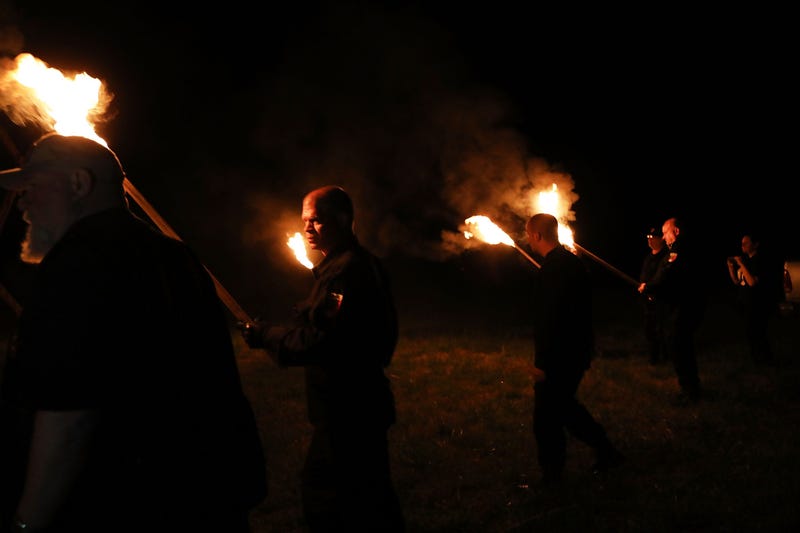
After more than a month of protests against racial discrimination across the country, lawmakers are again calling for the Department of Defense to address the issue of extremism in its ranks.
"White supremacist ideology and extremist behavior have no place in the U.S. military and undermines the critical mission of our armed forces," Rep. Elaine Luria, D-Va., said in a statement. Luria is one of the lawmakers who signed a bipartisan letter to Secretary of Defense Mark Esper demanding an immediate review of active-duty personnel policies regarding extremist and white supremacist ideology.
"Secretary Esper has a duty to our troops and our national security interests to immediately review DoD policy and take specific and effective steps to ensure that extremist ideology and behavior is prohibited among active-duty personnel," Luria's statement continues. Before being elected to Congress, Luria served more than 20 years in the U.S. Navy.
The letter comes hot on the heels of a provision in the House-approved National Defense Authorization Act that would make extremist activity a stand-alone crime under the Uniform Code of Military Justice.
"For too long, the military has refused to accept that it has a problem with white supremacy and other far-right extremists in the ranks," Rep. Jackie Speier, D-Calif., said during the House Armed Services Committee's mark-up of the 2021 NDAA. "Equally appalling is its failure to address or even provide adequate information on the systemic racism that has kept servicemembers of color from rising through the ranks for generations."
In addition to criminalizing extremist activity under the UCMJ, the NDAA draft also includes a provision to establish a new defense inspector general specifically for issues of racial discrimination.
Currently, service member participation in extremist activities can result in charges for poor conduct, but no specific criminal charge for extremist activity currently exists in the UCMJ.
Last month, Air Force Staff Sgt. Steven Carillo was indicted for murder and attempted murder after he allegedly killed a federal security guard in Northern California. Federal prosecutors linked Carrillo with the charges to an extremist, anti-government group called the Boogaloo movement.
Air Force sergeant indicted in federal guard killing
"We, like many Americans, responded with horror to the news that active duty Air Force Staff Sergeant Steven Carillo was responsible for the recent killing of two law enforcement officers in Northern California and publicly declared his allegiance to the extremist Boogaloo movement by crawling a phrase in blood on top of a stolen car," the bipartisan letter signed by 40 members of Congress reads.
The DoD's "lax, unenforced policy" toward extremist and white supremacist activity is "deeply concerning," the letter continues.
Carillo is far from the first service member who garnered a national media spotlight for such activity.
Following the Charlottesville rally in 2018, a Marine was kicked out of the service after an investigation found he both marched in the rally and had ties to neo-Nazi groups. The former Lance Cpl. allegedly later bragged online about assaulting counter-protesters.
In 2019, a Coast Guard lieutenant who was arrested on gun charges was found to have a cache of weapons and a target list which included politicians and journalists. In a letter, he described himself as a “white nationalist.”
This is also not the first time Congress has called for change.
In February of this year, members of a House Armed Services subcommittee suggested military reporting and punishment policies regarding white nationalism and extremism should be updated to reflect a resurgence of domestic terrorism in the United States.
White supremacy on social media not tracked by US military. Congress wants to know why.
“I have a real problem with the vagueness of these policies and the distinction in active participation and membership. I think these policies have to be updated. They’re woefully inadequate for what we know today is a very serious domestic terrorism problem,” Rep. Speier said during the February hearing.
--
